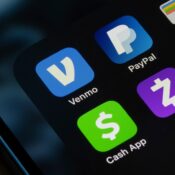Steve Weisman is a lawyer, college professor, author, and one of the country’s leading experts in cybersecurity, identity theft, and scams. See Steve’s other Con Watch articles.
With COVID-19 continuing to rage, scammers are taking advantage of the public’s concern and using the pandemic as the basis for a wide variety of scams. Here are two current COVID-19 scams and how to avoid them.
Clinical Trial Scams
Many people are quite optimistic about the progress of companies such as Pfizer and Moderna in developing viable vaccines. Many other companies are also intensely working on a vaccine. Presently, there are dozens of clinical trials being conducted. Many people are interested in participating in these trials, both to be able to contribute to the battle against the coronavirus and to collect the payment that participants in such clinical trials receive, which is generally between several hundred and several thousand dollars. Unfortunately, scammers are all too willing to lure you into participating in a phony clinical trial. These sham clinical trials are offered through legitimate-appearing websites, emails, and other promotional material.
Some criminals offer to sell you lists of clinical trials so you can contact them about participating. This is unnecessary, as the National Institutes of Health offers a free searchable database of clinical trials on a wide variety of diseases including the coronavirus. To volunteer specifically for a coronavirus clinical study, visit the Coronavirus Prevention Network.
Scammers operating phony clinical trials may ask you for personal information such as your Social Security number, which they will then use to make you a victim of identity theft. While legitimate clinical trials will ask for necessary personal information such as your name, contact information, age, gender, race, ethnicity, and pre-existing conditions, they will never ask for your Social Security number. Some scammers will also ask for your bank account number and routing number to purportedly wire your payment for participating in the clinical study to your bank account. To be safe, you can ask that they merely send you a check so that you do not need to provide them with your banking information.
CARES Act Payments
The CARES Act provided $1,200 payments to millions of Americans who suffered financially due to the coronavirus pandemic, but as many as twelve million people who were eligible for these payments did not receive anything. People who didn’t file federal income tax returns for either 2018 or 2019 because their income was too low may not have received any stimulus payment yet, although many are in desperate need of this assistance. The IRS recently sent a letter to nine million people who may be eligible for CARES Act payments that instructs them how to apply for their payment. The deadline for applying for a CARES Act payment is November 21, so if you have not received a payment and believe you are eligible for one, you must act quickly.
Taking advantage of confusion about the CARES Act payments, scammers are already contacting people via the phone, emails, and text messages posing as the IRS and offering to help people claim their stimulus money. In some instances the scammers ask for a fee in order to process your payment. In other instances they ask for personal information that they use for identity theft. They are also luring people into clicking on links in emails and text messages that contain malware that can infect your computer.
Remember my motto, “Trust me, you can’t trust anyone.” The IRS is not contacting you by phone, text message, or email about the CARES Act payment. Even if your Caller ID indicates the call is from the IRS, it is a simple matter for scammers to “spoof” a number so that it appears as if the call is coming from the IRS when it is not.
It is also important to remember that there is no charge of any kind to receive a CARES Act payment. Anyone asking for such a payment is a scammer.
Go to the IRS for information you can trust about the CARES Act stimulus payments.
Featured image: Lightspring / Shutterstock
Become a Saturday Evening Post member and enjoy unlimited access. Subscribe now




Comments
I was contacted over the phone by an online trader who specialised in binary options, cryptocurrency and forex trading. He said his company was on the cutting edge and used the latest technology and could offer guaranteed returns. I invested a few thousand and used their online platform, which seemed to work very well. I could see my trades were resulting in good profits. I invested more at their insistence and they promised I would earn even more.
When I wanted to withdraw my money I was told I would need to pay taxes on my profits before I could access it. I was never warned about this but they insisted I needed to pay taxes before I could get my money back. After I asked for my money, my trades started to fail and my accumulated profits were starting to decrease. They pressured me to invest more so that I could reverse the situation by increasing my ‘trades volume’. They said I would lose everything unless I invested more as an emergency.
I feel very embarrassed by this scam — they were very convincing and professional. They stated I would be ‘kicked off the market’ because my trades were failing and I was reduced to three per cent of my initial investment but by that point I knew it was all fake. I quickly contact cyb3rNub on Telegram. A tech friend that help me get my principle back. or via cyb3rnub @ gmail. com
Signs this was a scam
The victim was:
* phoned out of the blue by a stranger offering unsolicited advice on investments
* told he had to pay additional fees (taxes in this case) to access his money, though he was not informed of this earlier
* offered ‘guaranteed returns’
* encouraged to invest more by being promised higher returns, and then pressured to do so or risk of losing all of his money.
It’s a Shame that the CARES act provided extra unemployment benefits to Joe Citizen up to an Extra $600 per week but NOTHING to People who are on Social Security.